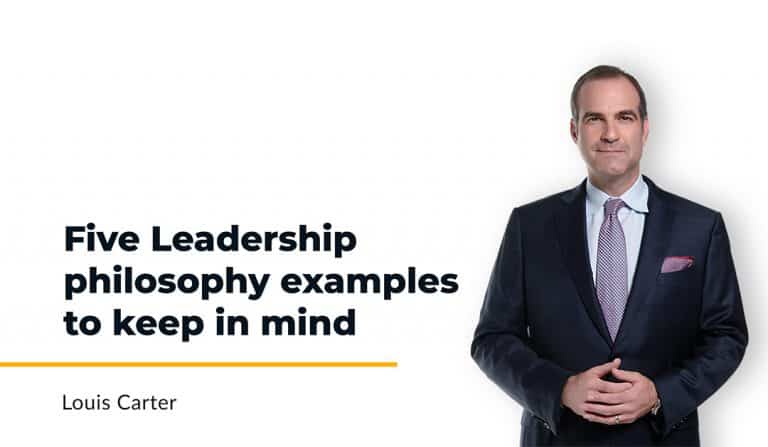5 Min. Read.
Coaching is vital for leaders to unlock the full potential of their employees. By providing guidance, support, and feedback, leaders can help employees develop their skills, grow in their roles, and reach their professional goals. This article explores some effective coaching techniques leaders can use to support their team members’ growth and development.
Coaching for Leadership Development
One of the key roles of a leader is to develop the next generation of leaders within their organization. Coaching can be crucial in this process by helping employees develop the skills and qualities needed to lead effectively. Leaders can use coaching techniques such as active listening, making powerful inquiries, and providing constructive feedback for employees to identify their strengths and areas for growth.
Active Listening
Leaders can enhance their coaching skills by actively listening to their employees. It involves focusing on what the employee is saying without interrupting, acknowledging their feelings, and asking clarifying questions to ensure understanding.
Leaders can also demonstrate active listening by maintaining eye contact, nodding, and using verbal cues such as “I see” or “Go on” to show they are engaged in the conversation. Reflecting what the employee has said can also demonstrate understanding and encourage further discussion.
Powerful Questioning
Asking powerful questions can help leaders encourage critical thinking and reflection in their employees. These questions are open-ended and thought-provoking, leading to deeper insights and solutions.
In addition to asking open-ended questions, leaders can ask probing questions to delve deeper into a topic or challenge the employee’s assumptions. These questions should be thought-provoking and encourage employees to explore different perspectives and possibilities.
Constructive Feedback
Providing constructive feedback is essential for leadership development. Leaders should offer specific, timely, and actionable feedback, leaning toward behaviors and actions rather than personal traits.
Leaders can ensure a greater impact of their feedback by providing specific examples of behaviors or actions they have observed. They should also focus on the impact of these behaviors and actions, highlighting positive aspects and improvement areas.
Goal Setting
Setting clear, achievable goals is crucial for leadership development. Leaders can help employees set SMART goals that align with their personal and professional development.
Leaders can help employees stay motivated and committed to their goals by regularly reviewing progress and celebrating milestones. They can also provide support and resources to help employees overcome obstacles and achieve their goals.
Coaching for Employee Growth
Coaching is also an effective tool for supporting employee growth and development. By providing regular coaching sessions, leaders can help employees set and achieve meaningful goals, develop new skills, and overcome challenges. Leaders can use coaching techniques such as goal setting, action planning, and accountability to support their employees’ growth and development.
Goal Setting
Setting and achieving goals is vital for employee growth. Leaders can help employees set challenging yet achievable goals that satisfy their career aspirations and the organization’s objectives.
Leaders can encourage employees to set SMART goals to ensure clarity and effectiveness. Regularly reviewing progress towards these goals and adjusting them as necessary can help employees stay on track and motivated.
Skill Development
Coaching can be used to develop specific skills essential for employee growth. Leaders can identify areas where employees can improve and provide guidance, resources, and support to help them develop these skills.
Leaders can facilitate skill development by providing opportunities for training, workshops, and mentorship programs. They can also encourage employees to seek out new challenges that will allow them to apply and develop their skills further.
Overcoming Challenges
Employees often need help with their growth. Through coaching, leaders can help employees identify these challenges, devise strategies to overcome them, and build resilience to face future challenges.
Coaching can help employees develop problem-solving skills and resilience to overcome challenges. Leaders can encourage employees to view challenges as opportunities for growth and provide support and guidance as they navigate difficult situations.
Performance Improvement
Coaching can also help improve employee performance. Through regular feedback and support, leaders can help people identify areas for improvement and develop action plans to enhance their performance.
Leaders can use coaching to help employees improve performance by establishing clear expectations, providing regular feedback, and offering constructive criticism. Celebrating successes and acknowledging progress can also motivate employees to continue improving.
Mentoring for Talent Management

Mentoring is another valuable tool for talent management. By pairing employees with more experienced mentors, leaders can help employees learn from others’ experiences, get new perspectives, and build their skills and knowledge. Mentoring can help employees navigate their careers, grow, and contribute more effectively to the organization.
Knowledge Transfer
Mentoring is a valuable tool for transferring knowledge and expertise within an organization. By pairing experienced employees with less experienced ones, organizations can ensure that valuable institutional knowledge is passed down and preserved for future generations.
Career Guidance
Mentoring provides mentees with valuable career guidance and advice. Mentors can help mentees navigate their career paths, set career objectives, and make informed decisions about their professional development.
Mentees get personalized career guidance and advice they may not receive through formal training programs. Mentors can offer insights into career paths, industry trends, and professional development opportunities, helping mentees make informed career decisions.
Networking Opportunities
Mentoring can also provide mentees with valuable networking opportunities. Mentors can introduce mentees to key contacts in their field, helping them expand their professional network and advance their careers.
Personal Development
Mentoring is not just about professional development but also personal development. Mentors can help mentees develop key soft skills such as communication, leadership, and emotional intelligence, which are essential for career success.
Final Word
Coaching is vital for leaders to unlock employee potential and drive organizational success. By using effective coaching techniques, leaders can support their team members’ growth and development, cultivate future leaders, and ensure a culture of continuous learning and improvement. Coaching can profoundly impact employee engagement, retention, and performance, making it a valuable investment for any organization.
To learn more about coaching techniques for leaders and how they can unlock employee potential in your organization, explore LouisCarter.com today.





